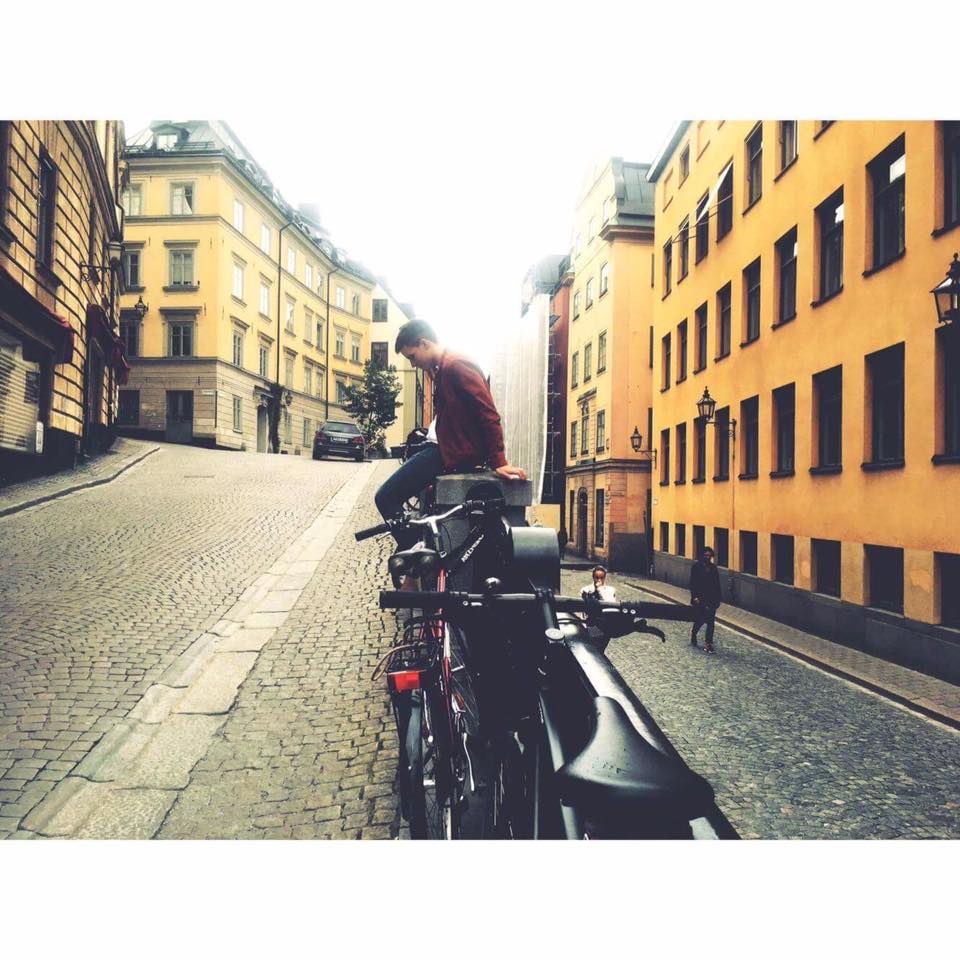A stranger in my own capital
It always feels so ambiguous for me to go home. This wasn’t where I grew up, so to a certain extent even I find it exciting since it’s unknown for me too. I don’t know my way around here as I would. I don’t know where to cross over to make a short cut. I don’t know the hilly and narrow streets in Old town like my own back pocket. I don’t know where the best place to go for unnecessarily large and greasy pizza on a rainy day would be. I don’t know where the best coffee is, so I go to Espresso House, the Swedish Starbucks. And I bump into people constantly, because what I do when I walk is that I look up at all the new, foreign and unfamiliar instead of looking straight ahead. I walk at the pace of a stranger, because this isn’t my home, and I don’t know where to go. I need to think here.
But, these are the people I grew up with. They speak the language in which I was taught what is right and what is wrong, and what is important and what is not, and how to transfer every feeling I have about all of this from thoughts into words. This is the language in which I can discern dialects and appreciate them, pick up on irony and sarcasm, and on tenderness and earnestness like only a native speaker could ever do. This is where the codes I know applies. Where people hug and look each other in the eye while speaking. Where good service is characterized by humanity and presence rather than perfection and servility. Where people, at least rather than rarely, think twice.
When I was 14 years old I had an assignment on foreign affairs in school. I asked my teacher ”what do I need to do to obtain an A?”. She said, and I remember this entire conversation word by word to this very day. ”To obtain an E, all you need to do is to cover the facts. To obtain a C, you need to demonstrate that you can see the connections between certain events. And to obtain an A, you need to analyze.”. ”What does that mean?” I asked unknowingly. ”To analyze Adam, it means that you show that you possess the skill of seeing things from another perspective than your own”. ”That doesn’t sound too difficult” I replied. And she said ”In life, you’ll come to realize that a lot fewer people than you think, knows how to do this. To write down facts every ordinary person in the world can do, but to put your own point of view aside and to realize that the world sometimes is wider than how you see it, that’s extraordinary”.
I’ve repeated that conversation to myself many times since that day ten years ago. And for every time, it’s managed to make a little more sense, making me realize that perhaps it’s not the cities or countries that are fucked up, it’s the people in them.
Sweden isn’t a progressed a country as most people would give it credit for, but it’s not half bad. I didn’t need to move abroad or travel the world to see this, but I needed it understand that what we have, should be appreciated. It’s easy to think that small simple and extremely commonplace daily things like the relaxed tone in which sales assistant addresses you in or the private space given to you standing in line or on the subway by fellow people are universal things, but they’re not. And the only things that aggravate me to come here and surround myself by all of these cultural characteristics that actually do mean the world to me, is that most people don’t seem to understand the value of them. Would you cook and share a homemade meal for someone, who wouldn’t appreciate it more, than if the two of you went to Mc Donalds? Too few know that it’s the small things the greatest riches lay, and sadly that depletes the value of them.
The world is made difficult by simple people.

